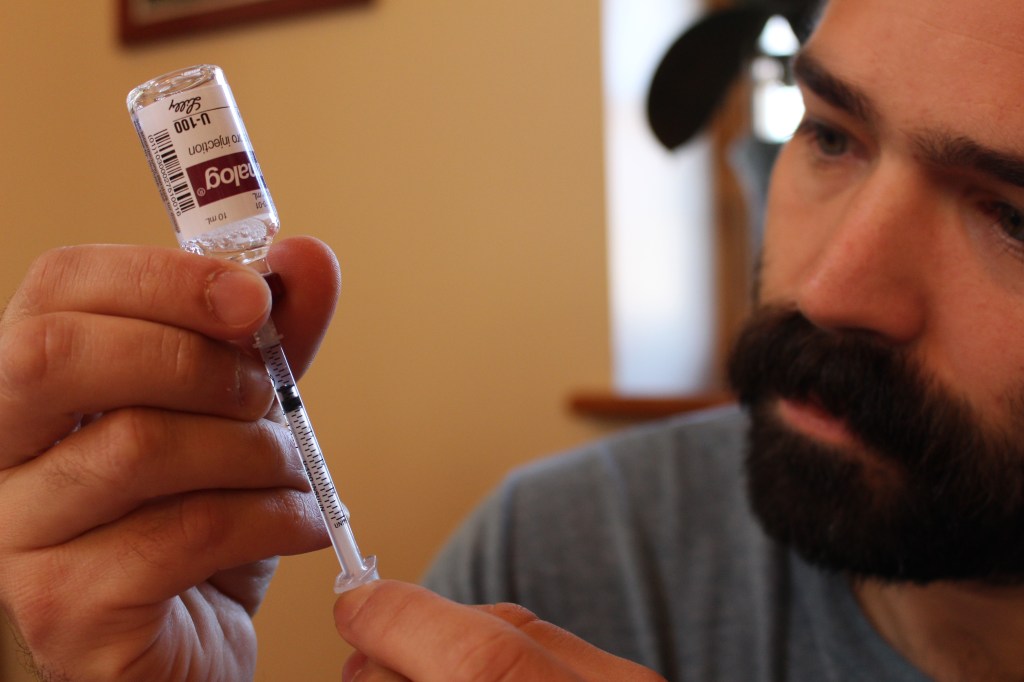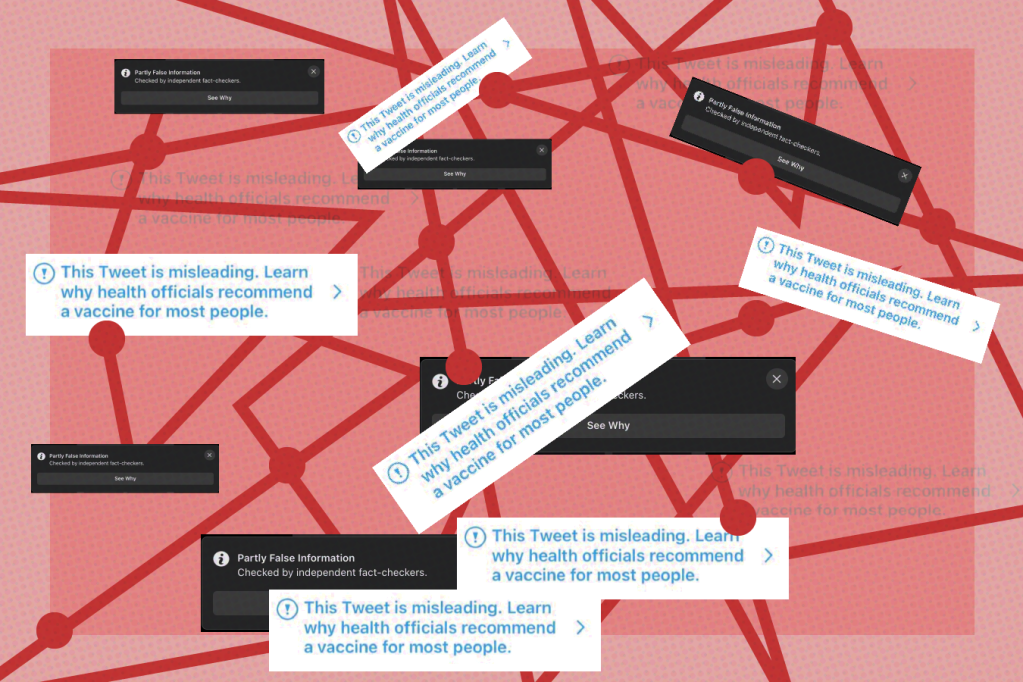It’s entirely possible to be irritable and depressed at the same time. Although depression is often associated with only sadness or hopelessness, it can also manifest as anger, frustration, and irritability, according to Jessica Borrelli, Ph.D.,1 associate professor of psychological science at the University of California, Irvine.
After managing the tremendous ups and downs of the COVID-19 pandemic, it’s only natural for basically everyone to feel more than a little irritable as a baseline emotional state. But if you’re also dealing with things like a lack of interest in your regular hobbies, trouble thinking, wonky sleep patterns, and emotions like the aforementioned sadness and hopelessness, then you may be dealing with major depressive disorder. Or maybe you have a different condition, like bipolar disorder, that can cause depressive episodes and make it harder to manage your irritability right now too. There’s no easy way to manage depression, but hopefully, some of these strategies can help you navigate being irritable and depressed.
1. Talk to a therapist (if at all possible).
Depression can make you feel stuck, and this can be hard to overcome on your own either because you don’t know what to do or you don’t have the motivation or energy to do anything. Talking to a therapist about your feelings can help you explore whether there’s a deeper meaning behind some of your irritability, says Jessica Stern, Ph.D.,2 clinical assistant professor in the department of psychiatry at NYU Grossman School of Medicine. Your therapist can also help you reframe some of the negative thinking depression causes and help you find ways to include more positive experiences.
If you don’t already have a therapist, looking for one can be a long process. Asking your insurance provider for clinicians in your area is an option, but that’s not accessible to everyone. OpenPath is one resource that lists clinicians who accept reduced fees, or you can search on the Substance Abuse and Mental Health Services Administration database for lower-cost centers in your area. You can also check out the Anxiety & Depression Association of America database for support groups in the U.S. If you already see a therapist, let them know that you would like help managing your irritability. They will most likely ask you for specifics examples so they can offer suggestions for your situation.
2. Consult with your doctor about taking medications that could help.
People often describe depression as feeling stuck in a cycle that’s hard to escape. Taking antidepressants can help break that cycle, according to Nicole Johnson, Ph.D.,3 licensed psychologist and associate professor of the counseling psychology program at Lehigh University College of Education. “Seeking psychiatric, in addition to psychological, support can be really helpful,” Dr. Johnson tells SELF. If you take antidepressants but feel like they aren’t helping, either because you’re really irritable, feel very down, or have other depressive symptoms, then you may want to ask your doctor to try something else or to change your dose.
It’s really important to talk to your mental health care team if you have bipolar disorder and think you’re entering a depressive mood episode, even if you’re currently on medication, says David Miklowitz, Ph.D.,4 director of the Max Gray Child and Adolescent Mood Disorders Program at UCLA Semel Institute. Typically, your doctor will prescribe mood stabilizers or antipsychotic medications to help you maintain more stable moods, depending on your situation.5 Your physician will reevaluate your treatment plan to make sure it’s the best one to help you maintain a stable mood. (Keep in mind that your treatment options may change over time based on new research and newly available therapies. Make sure you have ongoing conversations with your doctor about which treatment options may be best for you.)
3. Try to engage in things you enjoy (or used to enjoy).
When you’re depressed, going out is usually the last thing that you want to do—but therapists recommend it time and again. The idea is that engaging in a positive activity will potentially improve your mood over time (so, not necessarily instantly, unfortunately). There isn’t one right way to do this, so try to identify things that you previously looked forward to doing. You might go for a walk one day, take an outdoor workout class the next, and then have coffee with a friend that you are close to on the weekend. (Spending time outside and enjoying the sunlight may help improve your mood.) “What I tell people to do is to try it for a week or a few days, and not expect it to feel good at all,” Dr. Borrelli says, at least at first.
Depending on the severity of your depression, this might be hard for you to do. You might want to develop a 1-to-10 scale to determine how you’re feeling. If your depression is at about a 7 or higher, then it’s a good idea to check in with your therapist, if you are able to, about the best way to take care of yourself right now. For example, if you’re really depressed, then it may be hard for you to work out even if you enjoy being active. If you’re below a 7 and feel up to it, then you may be more open, even theoretically, to seeing friends or trying to do other things you used to enjoy, Dr. Borrelli says. Working with a therapist can often make this easier to do. “Sometimes a therapist can give you that encouragement that this might help even if you can’t believe it in your gut,” Dr. Borrelli says.
4. Identify any irritating triggers so you can respond appropriately.
Think about the last few times you’ve been really frustrated. Are you always annoyed with the same person? Can you identify specific situations or events when you become agitated? (You might try journaling to look for patterns.) Identifying these triggers can help you decide how to better handle the situation or avoid exposing yourself to situations in which you’re constantly irritated. For example, maybe you decide to see a particular friend in group settings only because she’s too energetic one-on-one.
However, you might not always have clear triggers, especially if your irritability is a product of depression or another mental health issue. And it can be really hard not to snap at someone you’re really annoyed with. So what do you do when you feel yourself becoming irritated?
“Find some way to slow things down,” says Dr. Stern. “A lot of times when we’re irritable, we want to respond emotionally, but that doesn’t necessarily help us.” Depending on your situation, slowing things down could mean going for a walk, taking a deep breath, or going into the next room. Once you feel calmer, you may be able to think more clearly and be less reactive. At that time it can be easier for you to think about what you want from the other person (or from a situation you tend to find irritating) and what the best approach may be.
5. Be as honest as you can about what you need.
How you communicate your feelings to someone will largely depend on the relationship you have with them. Depression can affect your relationships, and depending on your comfort level, you might just tell someone that your mood is low and ask them not to take it personally if you do appear irritable. If you live with a partner, family member, or close friend, maybe you feel more comfortable asking them to help you with managing your irritability, like by giving you space or by helping you stay more active, Dr. Miklowitz says. Or you might set boundaries so you engage only in specific activities or conversations that aren’t frustrating for you. And while you want to do what’s best for you right now, it’s important to be as thoughtful as possible in your approach. “You want to try to be as sensitive as you can to other people’s feelings and not alienate them,” Dr. Borrelli says. In the future you will likely feel grateful for maintaining relationships with the people who supported you when you needed it.
Sources:
1. University of California, Irvine, Jessica Borelli, Ph.D.
2. NYU Langone Health, Jessica B. Stern, Ph.D.
3. Lehigh University, Nicole Johnson, Ph.D.
4. UCLA Health, David Miklowitz, Ph.D.
5. U.S. Food & Drug Administration, The Facts on Bipolar Disorder and FDA-Approved Treatments
Related:
Note: This article have been indexed to our site. We do not claim legitimacy, ownership or copyright of any of the content above. To see the article at original source Click Here













